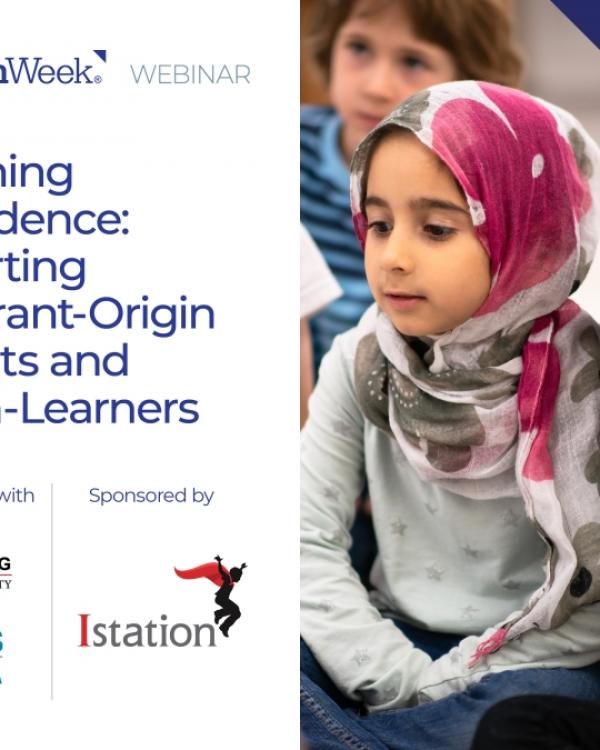
Carolyn Sattin-Bajaj of UC Santa Barbara’s Gevirtz School will be one of the presenters for an Education Week sponsored webinar, “Examining the Evidence: Supporting Immigrant-Origin Students and English-Learners,” on Friday, February 19 from 1-2 pm ET. The panel will draw on the evidence from two new EdResearch for Recovery briefs, “Supports for Students in Immigrant Families,” and “Supports for Students Who Are English-Learners.” The event is free and one can sign-up for it on line.
The event will also feature speakers Timothy Blackburn, Title III Administrator, Tigard-Tualatin School District, Oregon; Jessica Costa, English Learner Instructional Specialist, Virginia Department of Education; and Madeline Mavrogordato, Associate Professor, K-12 Educational Administration, Michigan State University. The event will be moderated by Debra Viadero, an assistant managing editor for Education Week.
Immigrant-origin children and English-learners are among the fastest growing school-age populations in the U.S. As two distinctly different groups of students with overlapping challenges, both immigrant-origin students and English-learners (ELs) often must navigate limited access to at-home educational resources while being disproportionately affected by COVID-19. Many students have seen their access to direct language instruction decrease in this time as a result of districts’ competing priorities, and students and their families have trouble navigating resources when they aren’t available in their native language.
Given these challenges, what can the research evidence tell us about the practices districts, schools and teachers can use to build inclusive learning environments that support immigrant-origin and EL students’ educational success and build inclusive learning environments and reduce the widening opportunity and achievement gaps between this group of students and their peers?
Carolyn Sattin-Bajaj is an Associate Professor in the Department of Education at the Gevirtz School. Her research focuses on issues of educational access and equity for immigrant-origin youth and other historically underserved student populations. Her work includes exploratory qualitative studies of immigrant and homeless families’ school choice behaviors; experimental research to develop and test interventions to reduce educational inequities; and studies of school leaders’ responses to xenophobia in schools and society and their sense of preparedness to address the consequences of immigration enforcement and racism for their school communities.
Sattin-Bajaj’s work has been funded by the William T. Grant Foundation, the Spencer Foundation, the Smith-Richardson Foundation, the Heckscher Foundation for Children, the New York Community Trust, and the American Educational Research Association. She is author of Unaccompanied Minors: Immigrant Youth, School Choice, and the Pursuit of Equity (Harvard Education Press, 2014), Matching Students to Opportunity: Expanding College Choice, Access and Quality (co-editor with Andrew Kelly and Jessica Howell, Harvard Education Press, 2016), Blueprint for School System Transformation: A Vision for Comprehensive Reform in Milwaukee and Beyond (co-editor with Frederick M. Hess, Rowman & Littlefield, 2013) and Educating the Whole Child for the Whole World: The Ross School Model and Education for the Global Era (co-editor with Marcelo M. Suárez-Orozco, New York University Press, 2010). Sattin-Bajaj earned a Ph.D. and M.A. in international education from New York University. Prior to earning her doctorate, she worked on secondary school reform at the New York City Department of Education.